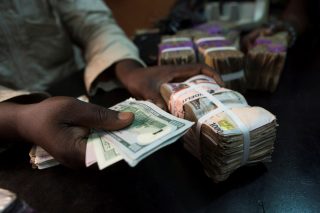Nigeria, along with three other African countries accounted for up to half of illicit financial flows (IFFs) in the sub-Sahara from 1980 to 2018, a recent report by American research group Brookings Institution said.
The region attracted nearly $2 trillion in foreign direct investment and official development assistance within the 38-year period under review, while an estimated $1.3 trillion was emitted in illegal flows.
According to the research firm, larger economies like Nigeria have higher levels of illicit financial flows. “We find that the top four emitters of illicit flows – South Africa, the Democratic Republic of Congo, Ethiopia, and Nigeria – emit over 50 percent of total illicit financial flows from sub-Saharan Africa,” it said.
The report finds a correlation between higher trade activity and real gross domestic product, and higher illicit financial flows. This is said to be due to the increased opportunities for perpetrators to channel illicit resources abroad generated by higher economic activity. For instance, there has been an increase in illicit outflows of capital toward emerging and developing economies such as China over the past decade, as trade between Africa and the countries increase.
Higher taxes and higher inflation also lead to higher illicit financial outflows, Brookings said, suggesting that firms look for more stable or favorable fiscal environments for their funds.
High levels of illicit flows also occur in countries that depend on natural resources. Among the top 10 emitters of illicit flows, nine countries attribute a significant portion of total exports to natural resources. “Natural resources provide countries with opportunities to expand the volume of total trade, which is correlated with the volume of illicit financial flows; studies also suggest that extractive industries are particularly prone to illicit financial flows,” the Brookings report reads.
While illegal flows are not new to the continent and the high aggregate amount appears alarming, the report noted that the relative share of illicit financial flows seemed to be steady or declining. In 2018, illegal flows only made up 5 percent of GDP, down from 8 percent in 2012 and 2008. While as a share of trade, they fell from 14 percent in 2008 to 11 percent in 2018.
But as countries grow, there is a need for increased diligence to address illicit flows which pose a central challenge to development financing. “These flows, illicitly acquired and channelled out of the continent, continue to pose a development challenge to the region as they remove domestic resources that are crucial for the continent’s development,” Brookings said.
Recommendations provided to check illicit flows include cooperation at the global level. There have been some initiatives over the past decades but implementation has been challenging and many African countries lack the resources to dedicate to curbing illicit flows. More so, delay by advanced economies in fully committing to the initiatives has prevented full transparency and contributed to the continuation of harmful tax practices.
Repatriating funds that had been smuggled out of the region could also be an important tool to solidify the domestic resource base of African countries, Brookings adds, citing the recent agreement between Nigeria, the United States and the British dependency of Jersey on the return of over $300 million stolen by former military ruler General Sani Abacha.








